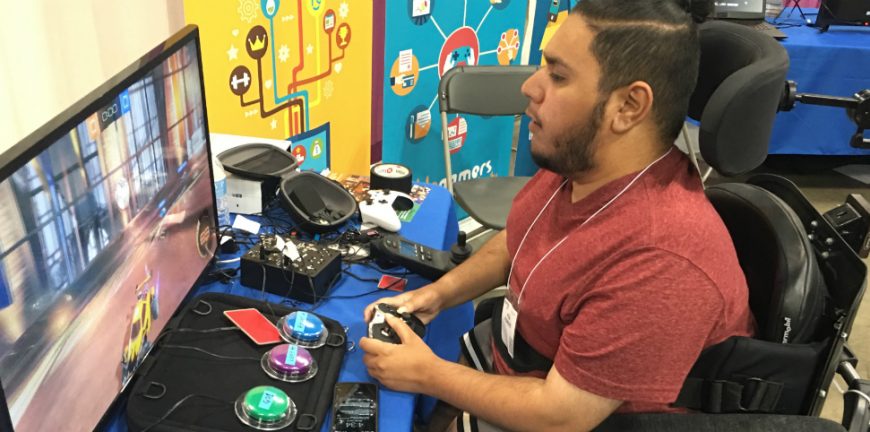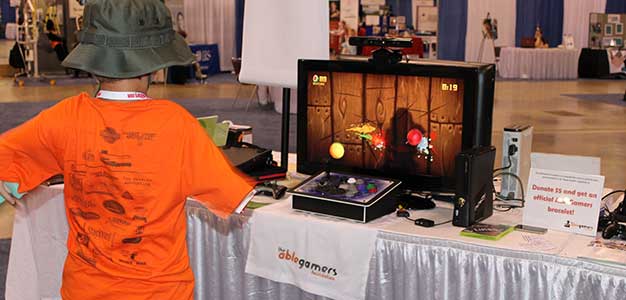The games industry has been moving towards diversity over the past few years. We’ve been making strides to include more people of color, LGBT, and non-male leads into our games. This is amazing, but there’s one community that hasn’t seen the same prioritization: the disabled.
Started in 2004, Ablegamers is the world’s largest advocacy group for disabled gamers. They’ve worked with studios as large as Bungie and indies like Vlambeer to help make their games more accessible. I’ve caught up with Steve Spohn and Craig Kaufman, two members of the Ablegamers team to talk about why accessibility is important and how developers can include disabled players in their design.

For Steve the argument for accessibility doesn’t have to be rooted in something ideological. He often tells developers that “People who make games want two things: They want people to experience their games and they’d like to make money from them.” According to numbers compiled by Ablegamers, there are 33 million disabled gamers in America and 50 million if you include the rest of North America. This represents a huge potential customer-base that is underserved by all accounts.
After Steve was done making this point, he got a little more personal. “The disabled life is very isolating … when you can’t participate with what the people in your life are doing” he paused, “It’s hard.” Gaming is one of the ways Steve connected with the other people in his life, and he sees it continually in his work. “It’s not [just] about the video game, it’s about the people.”

So what can developers do to help make their games more accessible? Craig came with a list of easy changes that can get games started down the path of accessibility. He singled out 3 separate groups that fall under the banner of disability: the visually impaired, deaf, and those with impaired motor functions. To key into each of those Ablegamers looks for games with subtitles, configurable UI elements, and Colorblind modes. A developer once told Kaufman that he “designed games so that his elderly mother could play them” as a sort of test for the accessibility of his game. Past that, Kaufman and Spohn both said that remappable keys and multiple difficulty settings are some of their highest priorities. Both of these help more players make it through content and can allow for more accessible control schemes on an individual level.
With all of this in mind, things are getting better for disabled gamers. Last week the first speed run of Summer Games Done Quick was the ultra-complicated Nier: Automata performed by Halfcoordinated, a speedrunner who plays with one hand. Ablegamers have launched a website dedicated to cataloging resources for developers who want to be more accessible in their design. Technology is advancing far enough to let people play with their eyes and through all sorts of other previously impossible methods. While we’re a long way from the destination of complete accessibility,with the help of dedicated individuals we’re getting closer every day.
All images courtesy of Ablegamers
This article has been edited to correct the number of disabled gamers in North America. (Previously 50 million in the US and Canada)
Did you like this post? Tell us
itch.io is an open marketplace for independent game creators. It's completely free to upload your content. Read more about what we're trying to accomplish and the features we provide.
Leave a comment
Log in with your itch.io account to leave a comment.
Wait but Canada doesn't have 17 million disabled gamers. We only have a population of ~35 million compared to America's ~320 million.
Hey Moon Moon, I'm following up with Ablegamers about these numbers. Thanks for bringing this to my attention.
I've updated the post to 50 million in North America rather than 50 million in the US and Canada
:)